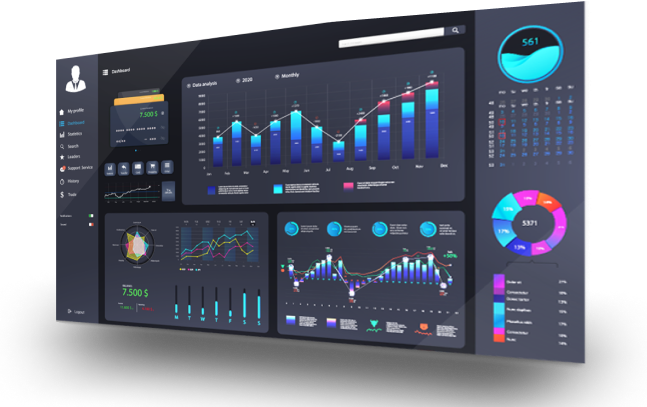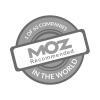NI’m selfishly writing this blog post to have consolidated list of notes from things I found important in the AMA from John Mueller.. so formatting may not be beautiful, but there should be some diamonds! I’m going to post periodically with the updated info as I discover.
- Important elements should display on page load. (Getting clarification, but further review indicates that intention here was that content is part of rendered DOM on load, and doesn’t require AJAX call to load the content) — Answered when referring to responsive design hiding certain elements, such as navigation links “the important part is that it’s loaded on the page, and not loaded on interaction with the page” – Context & Context2
- Crawl optimization should be a priority — “Getting crawling optimized is the foundation of technical SEO, and can be REALLY HARD for bigger sites, but it also makes everything much smoother in the end.” – Context1 & Context2
- X-Default is important when helping Google know where to send language agnostic search traffic, such as branded queries. Doesn’t have to point to a language selector — “No, you don’t need x-default. You don’t need rel-alternate-hreflang. However, it can be really useful on international websites, especially where you have multiple countries with the same language. It doesn’t change rankings, but helps to get the “right” URL swapped in for the user.” … “It’s basically for all country/language versions that you didn’t explicitly mention. It could be a language/country-picker, it could be an automatically-redirecting homepage, it could be your preferred “international” version, whatever you want” – Context1 & Context 2
- New search console index stats are better — “The index stats in the old & new search console are compiled slightly differently. The new one focuses on patterns that we can tell you about, the old one is basically just a total list. I’d use the new one, it’s not only cooler, but also more useful :-)” – Context
- Afraid of cloaking issues when split testing? .. treat google like everyone else — “Ideally you would treat Googlebot the same as any other user-group that you deal with in your testing. You shouldn’t special-case Googlebot on its own, that would be considered cloaking.” .. “Depending on how you do A/B testing, Googlebot might see the other version, so if you have separate URLs, make sure to set the canonical to your primary URLs. Also, FWIW Googlebot doesn’t store & replay cookies, so make sure you have a fallback for users without cookies.” – Context
- Attribution will evolve a model for voice search queries, get on board or get over! – “As I see the SEO/web-ecosystem, there are a lot of people who are willing to put in the elbow-grease to make a difference, to make changes, to bring their part of the world a step further, and not just cement existing systems more into place. ” – Context
- Query parameters specified in a domain.com/folder GSC account take priority over those specified in domain.com GSC account, though you probably shouldn’t do it on purpose and complicate things — “Last I checked, the more specific one wins.” – Context
- Multiple pages about a single topic water down your value (re: keyword cannibalization)? — “We just rank the content as we get it. If you have a bunch of pages with roughly the same content, it’s going to compete with each other” … “Personally, I prefer fewer, stronger pages over lots of weaker ones – don’t water your site’s value down.” – Context
- Google does not pick up inline SVGs for image search — “We’re not going to “interpret” the images there, so we’d have to make do with the visible text on the page, and further context (eg, in the form of links to that page) to understand how it fits in.”… “Oh, another thing, with inline SVGs, we probably also wouldn’t pick them up for image search. I don’t know if you’d get reasonable traffic from image search to pages like that, but if you think so, it might make more sense to have separate SVGs that you embed instead of inlining them.” – Context
- Contact Firebase, if you have questions about app indexing — “I have no insight into App Indexing anymore since it moved to Firebase. However! Firebase has a way of getting direct support through their site, so I’d give that a shot!” – Context
- Don’t expect APIs for search results. Personalization and site features render them useless for rank checking anyway. — “It’s not that array of 10 URLs that it used to be… I don’t make these calls, but I’d be surprised if we set up APIs (paid or not) to do that again.” – Context
- API for New Search Console should be soon! — “We said it wouldn’t be far away, so I keep pushing.As I understand it, the first step is to expand the Search Analytics API to include the longer timeframe. Past that I’d like to have everything in APIs, but unfortunately we have not managed to clone the team, so it might take a bit of time. Also, I’d like to have (as a proxy for all the requests we see) a TON of things, so we have to prioritize our time somehow :-).” – Context1 & Context 2
- Single algorithm to cover all countries/languages, but their is an exception for some search features. — “we try not to have separate algorithms per country or language. It doesn’t scale if we have to do that.” … “The main exception here is fancy, newer search features that rely on some amount of local hands-on work” – Context
- If you buy (or create) a bad domain, you are stuck with it’s history. — “There’s no “reset button” for a domain, we don’t even have that internally, so a manual review wouldn’t change anything there.” – Context
- You can personalize content for your users, just leave enough unique stuff so Google gets the point. Also, Google doesn’t use cookies – “Googlebot expects to see the same content as the average user from the same locale would see. Personalization is fine, sometimes it can make a lot of sense, but make sure there’s enough non-personalized content on the page so that Googlebot has something to use to understand the relevance of the page for queries that could be routed there.” – Context
- Google unlikely to ignore the nofollow tag — “You never know how things evolve over time, but my feeling is that this is a pretty straight-forward signal which is useful for a lot of things & rarely causes problems, so I’d be surprised if we suddenly ignored it.” – Context
- All links to a page blocked by robots.txt get stuck, if crawler is causing problems control with crawl rate settings vs. blocking with robots. — ” the problem with robots.txt for that is that we don’t know what the page actually shows, so we wouldn’t know to either remove it from search (noindex), or to fold it together with another one (canonical). All links to that robotted page just get stuck.” – Context
- Use page speed tools for troubleshooting problems, not as an indicator for ranking — “I find these scores & numbers useful to figure out where the bottleneck is, but you need to interpret them yourself. ” – Context
- Disavow applies to the canonical URL, you don’t have to submit everywhere – “a disavow is between two canonical URLs essentially. If the https://www version is the canonical for your site, that’s the one where the disavow is processed.” – Context
- Don’t use review schema if people can’t add reviews – “if people can’t add reviews, that’s not in line with our guidelines.” – Context
- Don’t try to make City + Keyword (AKA Doorway) pages – “If you don’t have unique information to add to a page other than a city-name, then I’d fold those pages together and instead make a single (or few) really strong pages instead.” … I’m a big fan of having fewer stronger pages, rather than many similar pages. – Context & Context 2
- It isn’t so much about AMP as it is about being fast – “AMP is certainly a great way to get fast pages up, but it makes sense to think about your longer-term goals too, which might be to move completely to a fast framework, which might be AMP, or something else.” – Context
- Don’t try to build/focus an international SEO if there isn’t a business case for it – “Starting with SEO and hoping it results in a business strategy is not going to work.” – Context
- Cleanup Redirect Chains, save a kitten – “Practically speaking, if you see a bunch of chained redirects from links on your site to pages within your site, and you care about those pages, I’d just clean that up.” – Context
- You can’t block users in the US and not Googlebot from the US without it being considered cloaking. No way to block specific countries (Sorry for those looking for easy solution to GDRP) – “With regards to countries, we expect Googlebot to see the same content as other users in that region wold see, and usually we crawl from the US”… “if you need to block users in the US and still want to allow Googlebot’s crawling from the US, that would be considered cloaking and against our guidelines.” – Context
- To address crawled but not indexed issues in GSC, make the pages better. If other urls redirect to a url it can strengthen trust in its canonical – “Significantly improve the quality of your site, make it worth our while to spend more time indexing it.” – Context
- Don’t be surprised by fluctuating search features — “it’s still very early days for a lot of these search features, so I would certainly expect some experimentation & changes over time” – Context
- Silver bullet for ranking #1 fast? — “Just buy a site that’s already ranking” – Context
- Make sure you have main content visible above the fold — “We do expect content above the fold” – Context
- There are tools to help if you have problems with rendered pages — “it might be related to a stale cache or something similar (we cache aggressively for rendering). I’d check out https://developers.google.com/search/docs/guides/debug-rendering and https://groups.google.com/forum/#!forum/js-sites-wg to see what might help.“ – Context
- No indication that you can redirect too many domains to your site — “Redirect away. I doubt you’d get SEO value from that, but that’s kinda up to you.” – Context
- Search Console keyword data is scrubbed before you see it — “we might not track some queries that are made a very small number of times or those that contain personal or sensitive information. Additionally, Search Analytics data isn’t tied to individual sessions on the site.” – Context
- Don’t waste time trying to get pages indexed using fetch & render, ping with sitemaps — ” focus on the more scalable & normal ways of getting content indexed & updated, rather than submitting them manually. TBH I’m kinda surprised so many people do that manually when the normal processes should work just as well – save your time, just make sure your CMS uses sitemaps & pings them properly.” – Context
- The 5 second timout for JS rendering is a myth — “We don’t have a fixed timeout.” – Context
- Machine learning not likely to prevent troubleshooting “the algorithm” — “I think it helps to have discrete systems that you can debug individually, at least then you can work back towards which model was confused, and find ways to improve that.” – Context
- Old GSC not going away anytime soon! — “We’re taking it step by step, and trying to rethink the functionality rather than just blindly swapping in a new UI.” – Context
- Google trys to actively fix webmaster errors with hreflang, e.g. en-uk — “This doesn’t work if the wrong code is a legitimate country though, eg if you use “es-la” for Spanish/Latin America, we’re going to see that as being for Spanish/Laos instead” – Context
- Typically a benefit to consolidating domains — “Also, often having a single really strong site can be more worthwhile than having many “watered down” sites that show the same / similar content.” – Context
- Mobile first means they crawl mobile first for the index, not that all desktop is getting ignored — “We index desktop-only content anyway” – Context
- While Google checks certificate validity for weighting canonical tags, it doesn’t apply to HTTPS boost — “we don’t differentiate between valid certificates for websearch.” – Context
- Make sure you use the accurate canonical in your hreflag tags — “This is critical for hreflang, where we need to have the exact URL indexed like that in order to use it as a part of the hreflang set.” – Context
- Most incorrect SEO advice just wastes peoples time — “Most wrong SEO advice isn’t actively harmful to a site, it doesn’t cause problems for a site in the long run, it’s more that people are sent off to do something that has little or no effect at all (eg, 301/302, subdomains/subdirectories, valid HTML, code:text ratio, keyword frequency, etc.).” – Context
- Non-Head HTML tags in the head breaks/closes the head for Google rending things like canonicals and hreflang tags that follow as useless. — “ If you use hreflang, I’d double-check the rendered source with the Rich Results testing tool (it’s the only one that currently shows the rendered source), and check that there are no iframe’s or div’s above the hreflang annotations.” – Context
- Don’t get caught up trying to specifically optimize for voice search yet, at the expense of standard best practices, as we don’t know how it is going to play out. Also, don’t make thin pages around Q&A content — “I’d try to weave Q&A content into your normal content instead of making individual pages for each Q&A. That way, regardless of how the algorithms evolve, the pages will continue to be useful & have enough to stand on their own.” – Context1 & Context2
- If it isn’t on your mobile version, it won’t be in the index — “What will happen is we’ll index the mobile version instead of the desktop one. So if your content is different, that’s the version we’ll use.” – Context
- Individual niches don’t have custom signals, just more competive requiring more work. — “I don’t think we have explicit thresholds or anything for individual niches, that wouldn’t really scale to the whole web. ” – Context
- Actual word count is (most likely) not a metric considered by the algorithm. – “FWIW I’m almost certain that none of our algorithms count the words on a page — there’s certainly no “min 300 words” algorithm or anything like that. ” – Context
- Content expansion dilutes “value” per item. Likely logic behind the repeated message of consolidate where appropriate. – “ All else being the same, if you add pages, you spread the value across the whole set, and all of them get a little bit less.” – Context
- Google likely needs additional signals to verify markup, so if it isn’t working look at how to reinforce. — “we have learned that blindly trusting markup on a page is usually A Bad Idea.” – Context
- Quality raters guidelines items don’t directly impact rankings. I read this as important to optimize for users, but all items may not directly be a rankings factor. — “The guidelines are meant for folks who are reviewing the search results tests, they don’t have a direct impact on rankings. ” – Context
- You don’t need every possible structured data item implemented, follow the search features in use. — “I’d primarily focus on the SD that brings visible effects (that’s where you have a cleaner relationship between your work & the outcome), and for the rest, try to be reasonable. ” – Context
WEB ANALYTICS | SEARCH OPTIMIZATION | PAID ADVERTISING | COMPANY NEWS










